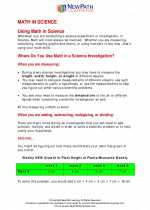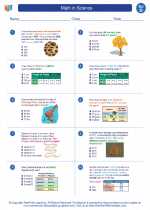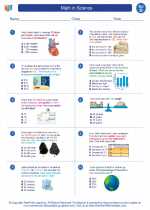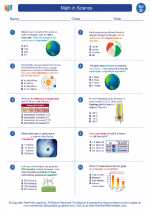Electricity
Electricity is a form of energy resulting from the existence of charged particles (such as electrons or protons), either statically as an accumulation of charge or dynamically as a current.
Key Concepts:
- Electric Charge: Electric charge is a fundamental property of matter. There are two types of charges: positive and negative. Like charges repel each other, and opposite charges attract each other.
- Electric Circuit: An electric circuit is a closed loop through which an electric current can flow. It consists of components such as a voltage source (e.g., battery), conductors (wires), and load (e.g., light bulb).
- Electric Current: Electric current is the flow of electric charge. It is measured in amperes (A) and is the rate of flow of electrons through a conductor.
- Voltage: Voltage is the electric potential difference between two points. It is measured in volts (V) and determines the force that drives the electric current through a circuit.
- Resistance: Resistance is a measure of how much a material or component opposes the flow of electric current. It is measured in ohms (Ω).
- Conductors and Insulators: Conductors are materials that allow electric current to flow easily, while insulators are materials that resist the flow of electric current.
Study Guide:
- What is electric charge, and what are the two types of charges?
- Describe the components of an electric circuit and their functions.
- How is electric current measured, and what is its SI unit?
- Explain the concept of voltage and its role in an electric circuit.
- Define resistance and provide examples of materials with high and low resistance.
- Differentiate between conductors and insulators, and provide examples of each.
[Electricity] Related Worksheets and Study Guides:
.◂Science Worksheets and Study Guides Fourth Grade. Math in Science
Study Guide Math in Science - 4th grade
Math in Science - 4th grade  Worksheet/Answer key
Worksheet/Answer key Math in Science - 4th grade
Math in Science - 4th grade  Worksheet/Answer key
Worksheet/Answer key Math in Science - 4th grade
Math in Science - 4th grade  Worksheet/Answer key
Worksheet/Answer key Math in Science - 4th grade
Math in Science - 4th grade 

 Worksheet/Answer key
Worksheet/Answer key
 Worksheet/Answer key
Worksheet/Answer key
 Worksheet/Answer key
Worksheet/Answer key

The resources above cover the following skills:
Science as Inquiry and Process (SA1, SA2, SA3)
The student develops an understanding of the processes of science by asking questions, predicting, observing, describing, measuring, classifying, making generalizations, inferring and communicating.